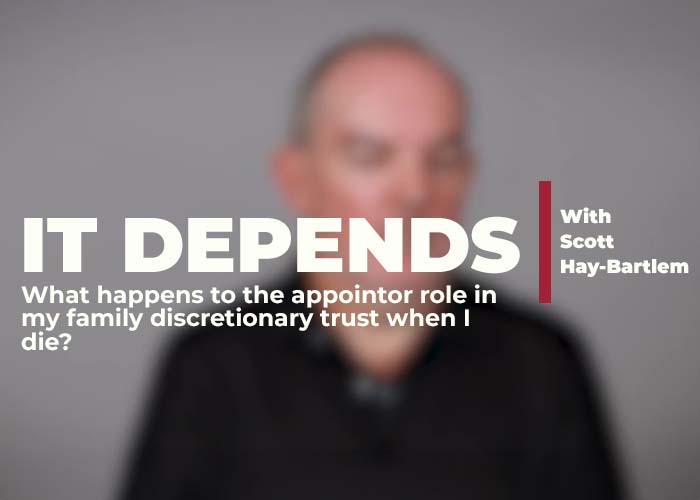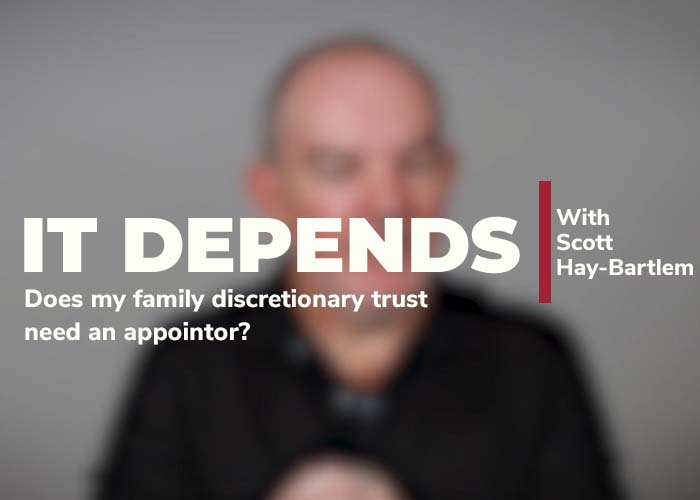In this edition of It depends, partner Scott Hay-Bartlem discusses what happens when the appointor in your family discretionary trust dies.
Video Transcript
Welcome to this It depends where I’m going to talk about ‘what happens to the appointor role in my family discretionary trust when I die.’
What is an appointor?
So, the appointor role in a family discretionary trust is one of those things that’s really dependent on the trust deed. Usually, they have the right to change the trustee, sometimes there will be other powers in there as well. Sometimes it’s called a name like the principal or the guardian. So, it’s a very important role because it oversees the trustee and can change the control over the decision maker about the trust if it wants to.
What happens when an appointor dies?
So, this is the It depends. It’s going to come down to the wording of your deeds. You’ve got to read the deed, read the deed, read the deed. Trust deeds will say different things. Some of them say somebody else becomes the appointor automatically. Some people say it must be your executor who takes on that role. Some trust deeds allow you to nominate or pass on the role of appointor. So, you need to check what your deed says and make sure you can work within it.
What if I don’t like what my trust deed says?
So, often when we’re working with estate planning, we’re looking at clients trust deeds to determine how control of the trust an appointer role will pass when they go. Now, we need to make sure the deed lets us do, we want to do, and if not, can we change the deed. And this is another read the deed, read the deed, read the deed question. Does variation provision allow you to change the role of the appointor? And if so, how? And work within that to see if you can get the appointor provision right. There are quite a few cases these days, in the courts about whether the appointor always been changed properly. That’s important to make sure we know what we’re doing. Lots of issues in this space, if you’d like any more information, please contact a member of our team.
Thanks for watching this edition of It depends.





